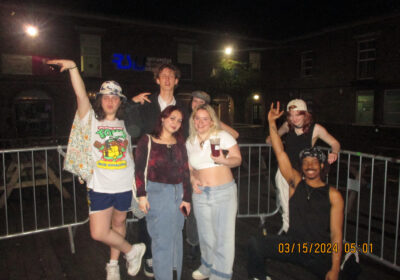The hearts of the world
Within the fenceless perimeter of a university campus is an energy normally obsolete in nature. An energy which can nearly be felt before it is seen or heard. Like a vein of gold at the utmost depths of a mine is the collegiate world, a pocket of throbbing intellect unknown to those unwilling to dig deep enough to strike it.
One might find on a university campus—at any time and without searching—the hum of a guitar string resounding proudly with freedom from worldly limits and expectations. After ten paces more, one could surely hear the boisterous echoes of actors singing and stomping their feet—within the choreography, yes, but with an energy that cannot be rehearsed. And still, beneath the streetlamp to one’s left one might see the red-faced debate of two aspiring poets, holding on dearly to their favorites—wild men who caught and sang the sun in flight, do not go gentle into that good night.
And—with a skilled ear—one might gather pieces here and pieces there.
The bounty of the experience is an ever-full glass, bubbling and foaming perpetually over the rim, so one might never go thirsty for knowledge—but one must begin with the thirst.
Universities are the pulsating hearts of intellect and the conduits of wisdom to the outside world. These ducts do not overflow and they do not trickle—the inevitable remains that knowledge obtained will become knowledge passed.
Yet the variables endure.
The outside receives only bits—valuable morsels but not as satisfying as the milk and honey of the society. The nectar, of course, is not too sweet for anyone’s palate, but those of the world that have never tasted it—or tasted it too long ago—cannot recall its flavor.
In this land one exhales what one knows and inhales knowledge—and thrives on this atmosphere; one parents an infant thought immaculately and raises it in this village; one sleeps soundly at night—protected by the religion of this knowledge.
But a dispiriting thought resides in one’s mind.
Life cannot be lived solely in the temple. One must eventually leave and create one’s sanctuary on the same values that the temple provided. That is the key to the flow of the conduits. One does not leave a utopia and forget its reason for existing, but brings it along and spreads its seed in sullen areas in need of the blooms so customary to one who’s lived in the heart of all that grows.






